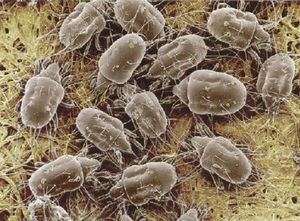A new study released by the UK mattress company Ergoflex recently revealed, after documenting the linen habits of over 2,000 British men and women, that young, single men change their sheets the least often, reportedly only doing so once every three months on average. Most also report only owning one set of bed sheets, as opposed to women who reported owning an average of three different sheet sets.
 Time helped summarize some of the results of the study based on certain demographics:
Time helped summarize some of the results of the study based on certain demographics:
"Single women reported swapping linens every two and a half weeks, while couples claimed to change sheets every two weeks. Of those couples, the study found 81% of those washing the sheets were women. Of the 2,004 interviewed, on average men admitted to owning only one set of sheets while women estimated around three selections.
"Though it's clear that females are cleaner overall, the results found that age is a factor as well. For those who answered once every three months, 55% were ages 18 to 25 with men accounting for 71%, while those who claimed to wash sheets once a week were in the 35 to 50 age range. Of the weekly washers, 62% were female. Indeed, 17% of single men participating in the study admitted that partners found their unhygienic practices unnerving compared to just 2% of women."
 Young mens' unclean bedroom habits can lead to a buildup of dead skin, dander, body secretions and bacteria, according to experts. Such a buildup can potentially lead to respiratory problems. According to Time, those same experts recommend that people change and/or wash their bed sheets once a week for that very same reason. “One person can perspire as much as a liter in a night—even more if you have a lot of covers,” said Philip M. Tierno Jr., director of clinical microbiology and immunology at New York University's Langone Medical Center, to the Wall Street Journal. He also explained how fungal mold, fungal spores, lint, fibers, pollen, soil and cosmetics can all accumulate in the fibers of bed sheets. Those, along with other bodily residues, can potentially serve as food to microscopic mites, which can nest in your sheets and leave their feces behind.
Young mens' unclean bedroom habits can lead to a buildup of dead skin, dander, body secretions and bacteria, according to experts. Such a buildup can potentially lead to respiratory problems. According to Time, those same experts recommend that people change and/or wash their bed sheets once a week for that very same reason. “One person can perspire as much as a liter in a night—even more if you have a lot of covers,” said Philip M. Tierno Jr., director of clinical microbiology and immunology at New York University's Langone Medical Center, to the Wall Street Journal. He also explained how fungal mold, fungal spores, lint, fibers, pollen, soil and cosmetics can all accumulate in the fibers of bed sheets. Those, along with other bodily residues, can potentially serve as food to microscopic mites, which can nest in your sheets and leave their feces behind.
Jed MacEwan, a spokesman for Ergoflex, told the UK's The Daily Mail how he was absolutely taken aback by the results. “We were quite alarmed at the apparent lack of basic hygiene from some respondents,” he said. The shade…



